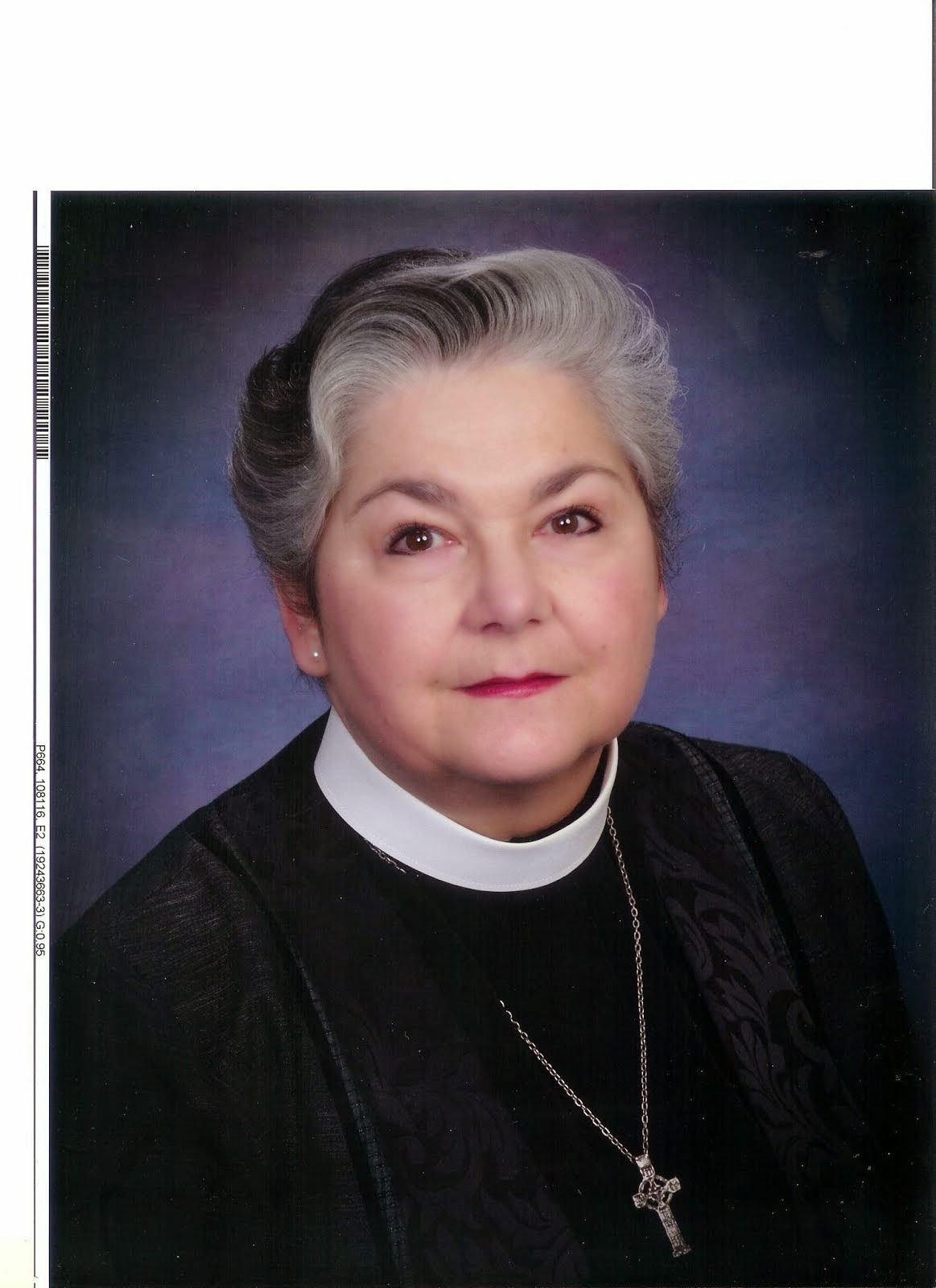
Last week, Father David started our series on the story of Abraham, who is revered as the father of three faiths: Judaism, Christianity, and Islam. One of the images that he presented to us was that of journeying on. It’s a powerful image, that our faith is not a static thing, but a journey. It is a journey that is represented in the life of Abraham, both in the physical journey from Ur to Canaan, and it is a journey to a covenant agreement between the one true God and his people. That journey image applies to families as well. I mention that, because the story of Abraham is really about all of us, because we are all children of Abraham. His story is the story of his family as well.
Every family is a journey of sorts. Every family has a story about its beginnings. My mother met my father in France in World War II. They were both in the US Army there, my father in Paris, my mother in Alsace. They had grown up a mere five miles apart, in Jersey City, New Jersey. But they courted, and became engaged, in the fields of sweet peas in France. It took a journey of almost four thousand miles from west to east, and another four thousand miles back again, for them to become the family that would adopt me, and raise me, back home in Jersey City.
Other families’ journeys are even more remarkable. One of my professors and his wife traveled 7000 miles to adopt a little girl in China. It was a journey of love and of commitment, one that they would use to build their own family with a child whom they had never met until one day in Shanghai.
Sometimes the journeys are metaphorical. We recently heard of the death of Mildred Jeter Loving, a woman of color whose marriage to a white man violated Virginia’s anti-miscegenation laws, beginning a battle that rose all the way to the Supreme Court. It caused the end of laws that prohibited interracial marriage. For two average persons, one white, one black, who simply wanted to love each other, their journey toward legalization of their union was not measured in miles. It was measured in tears, in jail time, in threats against their lives, in loneliness.
Think of that wonderful old musical “Fiddler on the Roof.” Each of Tevye’s daughters marries in a way that is inimical to their father, a devout and traditional Jew. The journey is not only that of the young women and the men whom they choose, it is that of the whole family from a way of life that seemed settled and solid, to one that would scatter them around the globe, away from their little village, away from the traditions that had seemed so inevitable and comforting.
Abraham and Sarah are embarking on their own particular family journey in our passage from Genesis this morning. The Lord is making them a promise that on the face of it seems absurd: they will have a son. Sarah, standing outside the tent eavesdropping, laughs out loud. She’s in her eighties, and Abraham is even older. They’ve long since given up on the idea that they would have children. You’ll remember in last week’s story from the Old Testament, when God sends Abram out to Canaan , he says “I will make of you a great nation.” It’s hard to make a great nation from a man when he and his wife are old, and they have no children of their own. Abram has started on this journey, both a journey of travel to Canaan, and a family journey that will lead to the birth of Isaac, but that boy hasn’t been conceived yet.
If ever there was a situation where the word “inconceivable” would be more apropos, I can’t think of one.
So on this journey, some visitors show up at Abraham’s encampment. They’ve come for a very specific purpose. It’s not clear who they are…the text seems to imply they are angels, but one of them, or all three together, seem to be the Lord, with whom Abraham has been having all those interesting conversations. Abraham shows them traditional Middle Eastern hospitality, offering them water and food and rest under a shady tree. We still see it in nomadic herder traditions. You never know when you are going to be stuck out on the trail with little resources, so the rule is you always offer hospitality to the traveler passing through, since you may be in the same boat some day (or on the same camel!)
They are there to reinforce the covenant that the Lord has made with Abraham, to remind him that in exchange for Abraham’s devotion to the one true God, Abraham will become the progenitor of a great nation. A reminder of that inconceivable thing, that Abraham will have a son. And Abraham laughs, and Sarah laughs.
And yet, when Sarah laughs, the Lord is aggravated with her, and calls her on it: “Why did Sarah laugh? Is anything too wonderful for the Lord?” Sarah, frightened, says “I didn’t say that.” And the Lord comes right back at her, “Oh yes you did!”
A remarkable exchange, wouldn’t you say? To have God standing up close and personal, getting into your face. To have God telling you that your journey didn’t end with your arrival in Canaan. Oh, no, it has only started. Is anything too wonderful for the Lord?
Apparently not. Our reading leaps ahead in the story, and Abraham, at one hundred years of age, becomes the father of Isaac. Isaac, whose name means “he laughs.” Isaac, the precious culmination of a journey that began with a promise from God, a promise of family, not only of the next generation, but of a thousand thousand generations to come. Is anything too wonderful for the Lord? Can the Lord make a family of three, and thence a family of three hundred million, like stars in the sky or grains of sand by the ocean? Can the Lord put father Abraham on the path of this family journey?
The Vietnamese monk Thich Nhat Hanh : says this of families: "If you look deeply into the palm of your hand, you will see your parents and all generations of your ancestors. all of them are alive in this moment. each is present in your body. You are the continuation of each of these people."
We read this story forward from Abraham, to Isaac, to all the generations that are to come. But can we read the story backward? Can we trace back on the palms of our hands all those generations that preceded us? Can we look back through generation before generation, a genealogy called a toledot in the ancient scriptures, and link ourselves back to that moment when the Lord said to Abraham, “I will surely return to you in due season, and your wife Sarah will have a son.”
Here is the gift of that story: we can trace back on the palms of our hands. We can link back through the generations, all the way back to father Abraham. The inconceivable gift of the Lord is passed through all those generations to us. Abraham’s covenant with God is passed through the hundreds of generations. God’s love for us, and commitment to us, is passed back from us through all the generations that preceded us.
And it’s important to look backward as well as forward, because there are lessons to be learned among our forebears. For me, one of the most comforting ones is to look at those in the generations who were less than perfect. Think of Peter, who denied his Lord. Think of David, who took Bathsheba and had her husband killed. Think of Rahab, a prostitute. Think of Jacob, who deceived his father to steal his brother’s inheritance. God has worked through them – even the ones who were murderers, even the ones who were adulterers, even the ones who were liars, even the ones who were a disappointment to God. God has worked through them all, for His purposes.
If God can use people like this, perhaps he can even use us for his purposes.
So here’s a thought: when three strangers show up at your door, welcome them in. The message may be a surprising one, an inconceivable one. God has use for you, and your journey will link you to all who have come before, and all who are to come.
Amen.







No comments:
Post a Comment